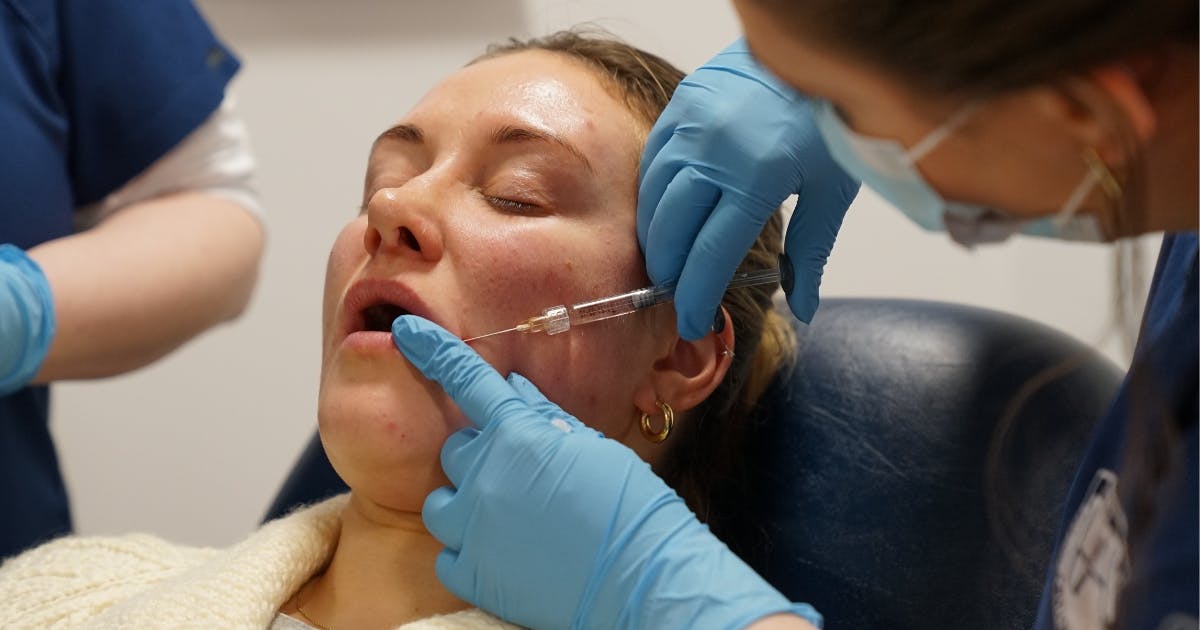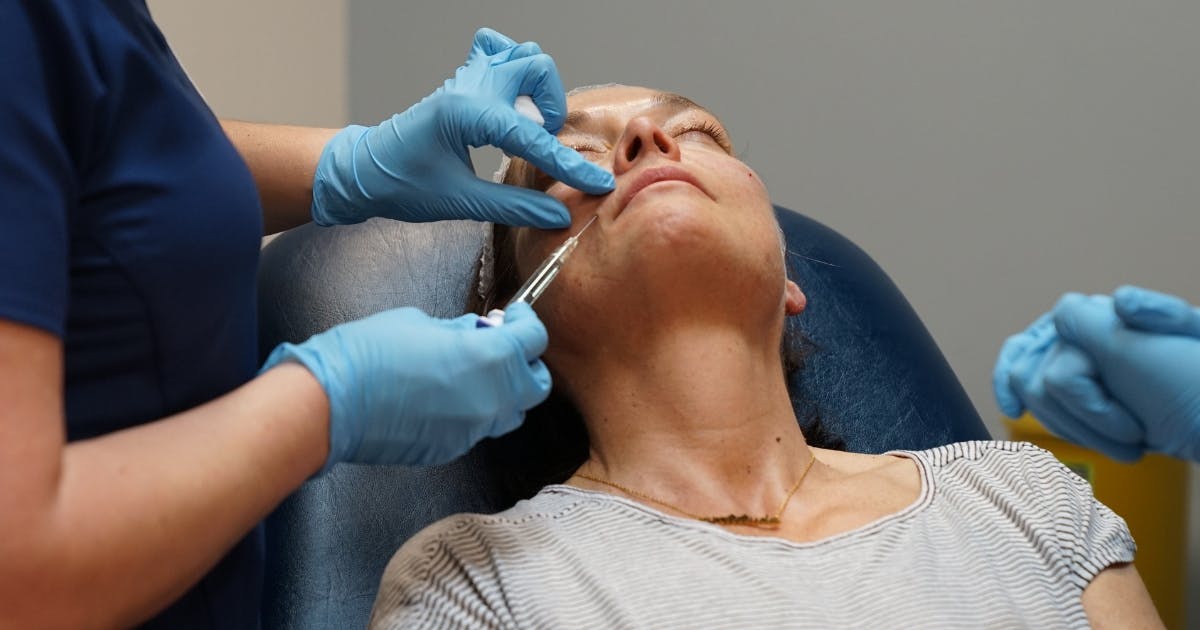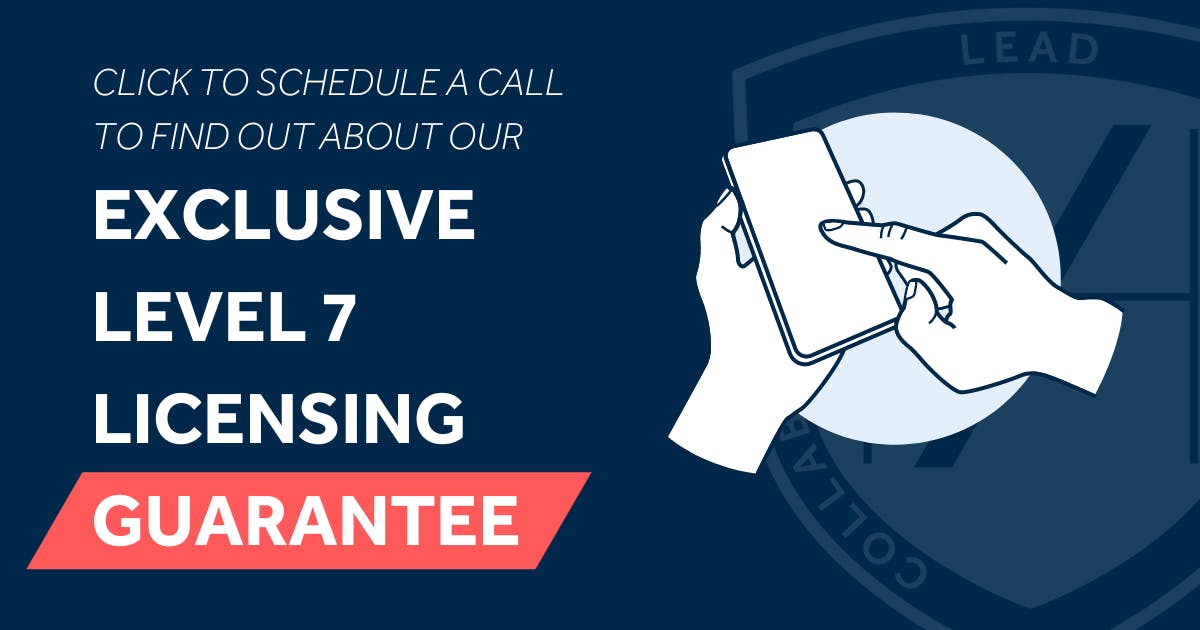What Aesthetics Qualification Do Practitioners Need to Get a Licence?

Knowing which aesthetics qualification to take is a tricky decision for healthcare professionals. With the incoming regulations likely to require a minimum standard or specific qualification, making the right choice becomes even more complex…

The situation right now (April 2024)
There is currently no licensing requirement nor minimum education standard to start practising aesthetic medicine. However, you are required to have insurance and your insurers will require you to have completed certain injectables courses.
Usually, this is an entry level qualification, such as a Foundation Training in Botox & Dermal Fillers course.
Whilst this is a great way to establish your baseline knowledge, you’ll need to undertake additional filler and botox courses to boost your confidence. The more hands-on, mentored guidance you can get, the better!
Preparing for incoming aesthetics licensing requirements
Obviously, if you’re looking for an injectables course now, you’ll want something that will cover you for when the incoming aesthetics licensing scheme for England is introduced.
We know this will require every aesthetics practitioner to hold a licence to practice and a licence for their premises. What is not yet known is criteria for the aesthetics qualifications required to obtain a practice licence.
There are already various government guidelines in place for what aesthetic medicine training courses should involve. As such, these will likely form the basis of any new standard.
What Professor David Sines hopes to see from the aesthetics licensing education standards
Professor David Sines, CBE, is Harley Academy’s Licensing Advisor. As Chair of the Joint Council for Cosmetic Practitioners (JCCP), he’s been at the forefront of aesthetics regulation for many years.
Here he outlines what he’s hoping for from the government announcement on which aesthetics qualification aesthetics practitioners will need…
“I've been thinking about what I'd really like to see coming out of the educational part or review of standards.
“I think we want to provide stability and assurance to so many people that we haven't just lost all the excellence in education and training that we've already got in place. I still want us to hold on to the principles outlined in the Health Education England training framework for non-surgical practice. I think it still holds true and I think we can certainly use that as a baseline. In other words, we don't start from ground zero.
“Secondly, I think the work that we've undertaken collectively in the sector over the last eight years, particularly with our clinical organisations, our membership associations, our Royal College - we really have got practice standards that the CPSA [Cosmetic Practice Standards Authority] have brought to a very high level I believe, of focus and proficiency. We've got them in our education framework - the JCCP Competency Framework - already. They come together so, again, let's not discard what we have.”
Assurances for practitioners who have already obtained aesthetics qualifications
Professor Sines explains this further concerning aesthetics practitioners who have already taken or committed to a particular botox or filler course.
“Those many hundreds of trainees who've undertaken JCCP-approved qualifications to date, such as those at Harley Academy, should not feel that their qualification is anything other than still fit for purpose. But, I will expect to see a gap analysis of what we've currently agreed.”
“Because, if I didn't have to confront a new challenge from DHSC [the Department of Health & Social Care] on training standards, I would have already instructed the JCCP to review and revise its 2018 Competency Framework. Five years of currency for any framework requires update and review. So I expect to be part of that much broader focus."

Ensuring aesthetics regulations and qualifications cover the necessary remit
Professor Sines highlights the amount of new cosmetic treatments that standards will need to cover.
“The next thing is to think about the new procedures that will need to come in place and we're talking about plasma replacement therapy, the vitamin infusions, et cetera. There are so many which have no standards underpinning them.
“Again, I want to see a real understanding of how we can integrate some of those new procedures to our core standards but also make sure none of them fall through the loop.”
A ‘universal framework’ for education and aesthetics training
Once we have these standards, David believes these should be folded into a “universal framework”.
“This should be a universal framework of education and training standards irrespective of the practitioner, irrespective of any claim to proficiency. We should all test ourselves against that new standard with equality of access to training but also standardisation of outcome.
“I believe educational organisations or training centres such as Harley Academy not only are meeting the standard now, but are already trying to future-proof ahead to think, ‘What would this mean for our existing trainees, those who trained previously, those who are training in the next year?’ to look at those potential guarantees of top-up opportunities to meet that new standard when it arrives.”
A regulated aesthetics qualification guaranteed to meet the licensing requirements
Professor Sines is, indeed, correct! We offer an exclusive Harley Academy Level 7 Licensing Guarantee to anyone purchasing our course prior to the aesthetics licensing scheme for England being announced. This covers all our Level 7 Diploma in Botox & Dermal Filler courses, including our Combined Level 7 and Fast Track Level 7.
It involves ensuring that we deliver the requisite training needed to ensure you meet the incoming educational standards for botulinum toxin and dermal fillers, to obtain your licence to practice. This means you can start your course now ahead of the licensing scheme implementation, with the comfort of knowing you’ll be compliant.
Our unique delivery of the Level 7 aesthetics qualification - as innovated by our founder, Dr Tristan Mehta - has resulted in the following accreditations:
- Harley Academy is a JCCP-approved aesthetics training academy
- Our Level 7 courses are also JCCP-approved
- All our Level 7 qualifications are government-regulated via Ofqual.
We’ve designed our Level 7 injectables courses to ensure a cohort of safe, ethical, competent and employable medical aesthetics professionals.
You could complete our Level 7 Diploma in Botox & Dermal Fillers in as little as 6 months
We offer a clear pathway for healthcare practitioners looking to start a career in aesthetic medicine, from total beginner to experienced practitioner. This involves unique opportunities including only one-to-one mentoring, where you never share patients and learn to treat your own patients from start to finish.
For those of you who are already experienced aesthetics practitioners and are looking to gain a formal qualification, we've designed the Fast Track Level 7 injectables course. This allows you to achieve your Diploma without the need for practical training, through Recognition of Prior Learning. As long as you meet our entry criteria, you could complete your Level 7 Diploma in as little as six months!
If you would like to hear more or receive personalised advice on the injectables training that’s right for you, book a call with our support consultant, Christine Slater. Gather your information now and be prepared for when the aesthetics regulations are announced!
All information correct at the time of publication
Download our full prospectus
Browse all our injectables, dermal fillers and cosmetic dermatology courses in one document
By submitting this form, you agree to receive marketing about our products, events, promotions and exclusive content. Consent is not a condition of purchase, and no purchase is necessary. Message frequency varies. View our Privacy Policy and Terms & Conditions
Attend our FREE open evening
If you're not sure which course is right for you, let us help
Join us online or in-person at our free open evening to learn more
Our Partners














STAY INFORMED
Sign up to receive industry news, careers advice, special offers and information on Harley Academy courses and services


